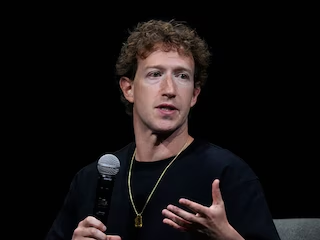Mark Zuckerberg Takes On Apple Again, Says Falling iPhone Sales Have Come At A Big Cost

Mark Zuckerberg has gone after Apple once again, and now he claims that the company’s falling iPhone sales have come at a big price for the consumers and app developers as well. Speaking candidly in a podcast recently, Zuckerberg claimed that Apple’s innovation has stagnated and the brand is heavily dependent on the iPhone sales to make big money.
He is basically referring to the heavy App Store tax that tech giants like Apple and Google levy from the app developers. The Meta-owned apps like Facebook, Instagram and WhatsApp hosted on iOS are charged 30 percent commission by Apple, which has irked developers like Meta, Epic Games and more.
Zuckerberg points out that Apple continues to sit on the golden goose (iPhone) that Steve Jobs invented two decades back. He even mentioned that every new iPhone is hardly an upgrade over the older models.
The app store commission has been a big subject across the industry, so much that Apple has been taken to the court by Epic Games for its practice. The company has been forced into revising its policies in the EU regions but more countries want these changes to benefit their developers.
The Apple Garden Debate
Zuckerberg even used the podcast to grill Apple over its renowned closed garden which is applicable for its technology. He feels the company doesn’t allow its devices to work smoothly with third-party apps or even support other platforms under the garb of security concerns.
He says Apple uses security as an excuse to stop its products from becoming accessible to other companies. He also claimed that the $3,499 priced Vision Pro headset isn’t that good compared to the Meta headset, but he did point out that Apple’s next few models could be different.
Nothing that Zuckerberg has said in this podcast is new and he has been after the company over these issues for years. Having said that, Meta is probably one of those brands that cannot make tall claims about user privacy and there are reasons why Apple has been cagey about working with the platform.
